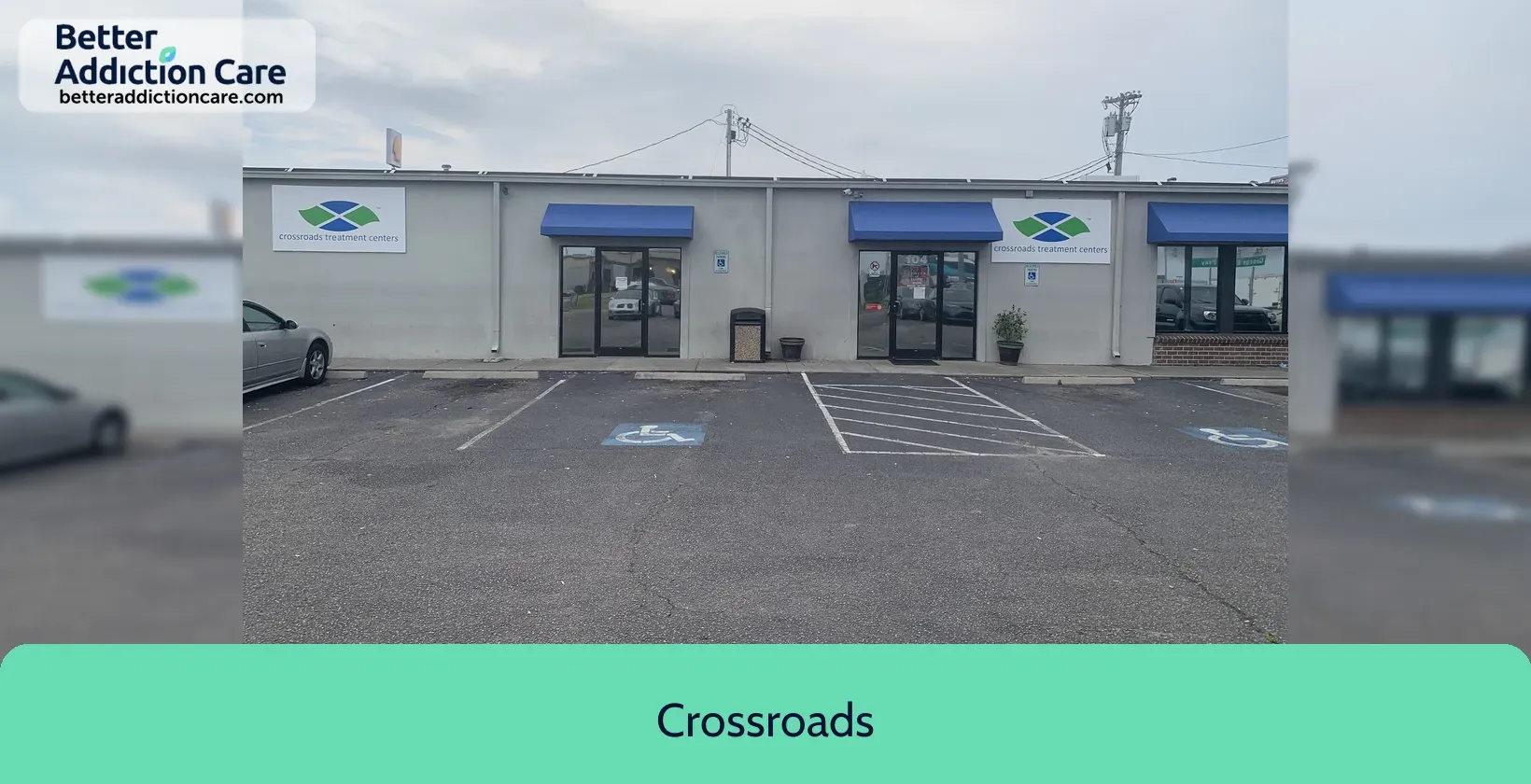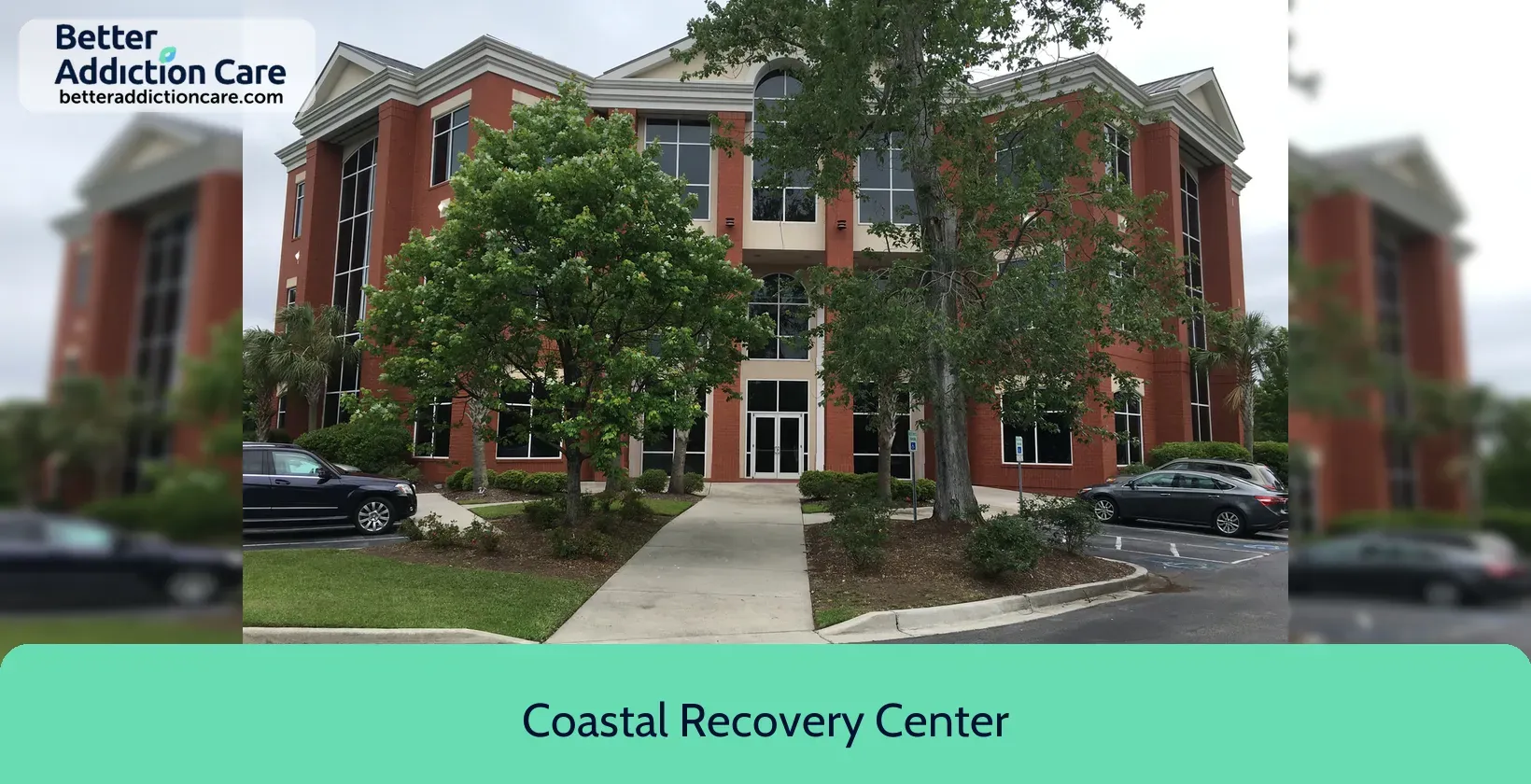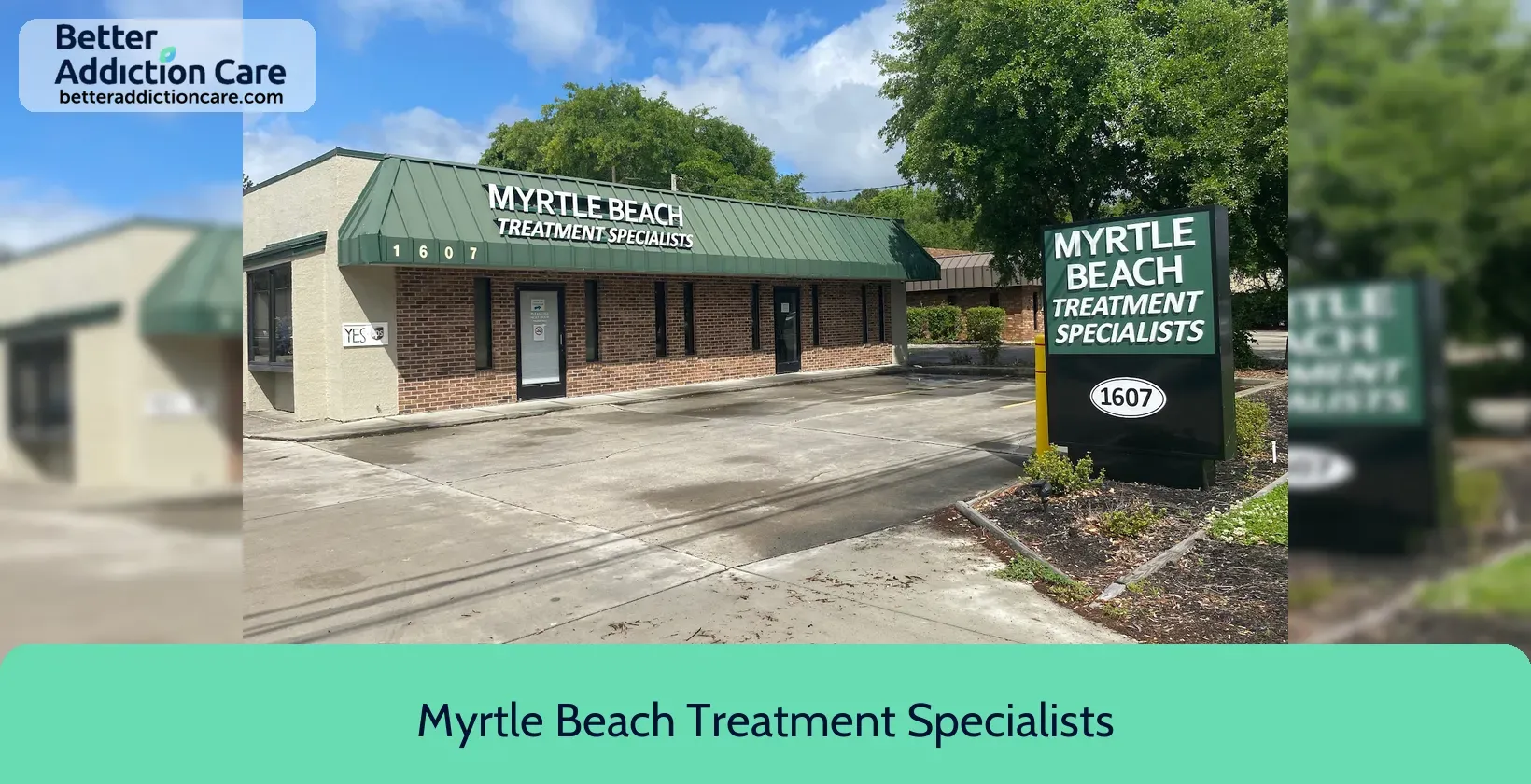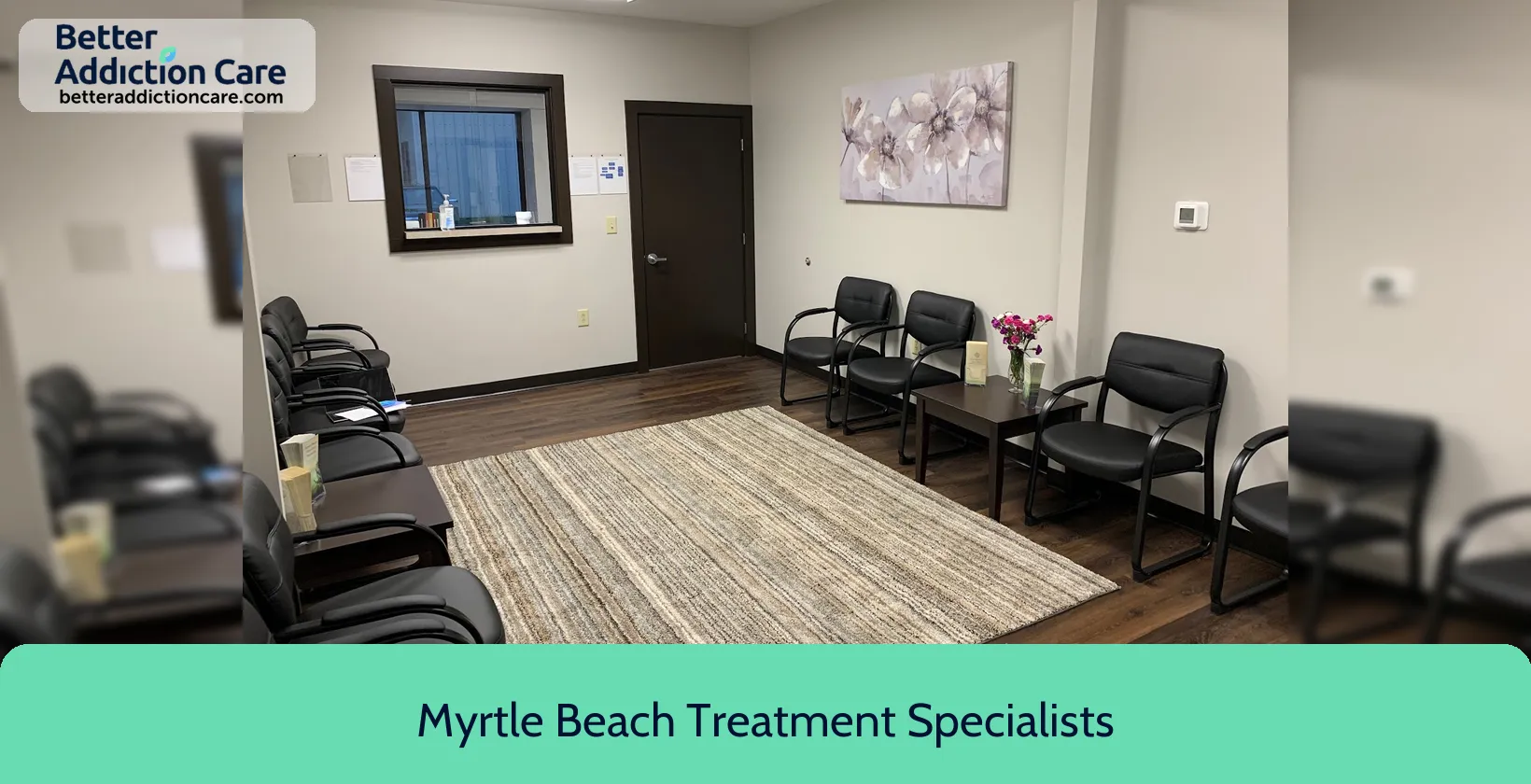Myrtle Beach Treatment Specialists
Overview
Myrtle Beach Treatment Specialists offer a walk-in clinic designed to provide accessible and comprehensive medication-assisted treatment (MAT). This clinic utilizes medications such as methadone, Subutex, and Suboxone to aid in the treatment of substance use disorders. In addition to MAT, counseling services are available to support patients' recovery and address the psychological aspects of addiction. The combination of medication and counseling ensures a holistic approach to treatment, promoting long-term recovery and well-being.
Myrtle Beach Treatment Specialists at a Glance
Payment Options
- Cash or self-payment
- Medicaid
- State-financed health insurance plan other than Medicaid
- Federal, or any government funding for substance use treatment programs
- SAMHSA funding/block grants
Assessments
- Screening for tobacco use
- Comprehensive substance use assessment
- Screening for mental disorders
- Screening for substance use
- Complete medical history/physical exam
Age Groups
- Seniors or older adults
- Young adults
- Adults
- Seniors
Ancillary Services
- Case management service
- Opioid use disorder clients only
Highlights About Myrtle Beach Treatment Specialists
7.48/10
With an overall rating of 7.48/10, this facility has following balanced range of services. Alcohol Rehabilitation: 8.00/10, Drug Rehab and Detox: 9.08/10, Insurance and Payments: 6.00/10, Treatment Options: 6.85/10.-
Drug Rehab and Detox 9.08
-
Alcohol Rehabilitation 8.00
-
Treatment Options 6.85
-
Insurance and Payments 6.00
Accreditations
SAMHSA certification for opioid treatment program (OTP):
Accreditation by the Substance Abuse and Mental Health Services Administration (SAMHSA) for Opioid Treatment Programs (OTPs) signifies that a program has met strict standards for providing high-quality care to individuals with opioid use disorders. It assures patients, families, and communities that the OTP follows evidence-based practices, employs qualified staff and maintains a safe and effective treatment environment. This accreditation reflects the program's commitment to addressing the opioid epidemic and promoting recovery.
Treatment At Myrtle Beach Treatment Specialists
Treatment Conditions
- Substance use treatment
Care Levels
- Outpatient
- Outpatient detoxification
- Outpatient methadone/buprenorphine or naltrexone treatment
- Regular outpatient treatment
- Aftercare
Treatment Modalities
- Cognitive behavioral therapy
- Substance use disorder counseling
- Trauma-related counseling
- Contingency management/motivational incentives
- Motivational interviewing
Ancillary Services
Languages
- Spanish
Additional Services
- Pharmacotherapies administered during treatment
- Housing services
- Drug or alcohol urine screening
Special Programs
- Clients with co-occurring mental and substance use disorders
- Veterans
- Members of military families
- Criminal justice (other than DUI/DWI)/Forensic clients
- Pregnant/postpartum women
Get Help Now
Common Questions About Myrtle Beach Treatment Specialists
Contact Information
Other Facilities in Myrtle Beach

6.71

6.75

7.23

7.27

6.94
Browse rehab centers near Myrtle Beach and in other cities across South Carolina
DISCLAIMER: The facility name, logo and brand are the property and registered trademarks of Coastal Recovery Center, and are being used for identification and informational purposes only. Use of these names, logos and brands shall not imply endorsement. BetterAddictionCare.com is not affiliated with or sponsored by Coastal Recovery Center.


